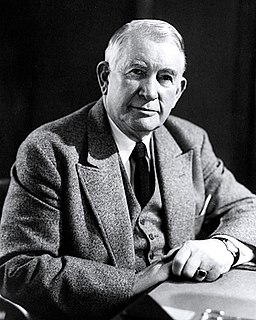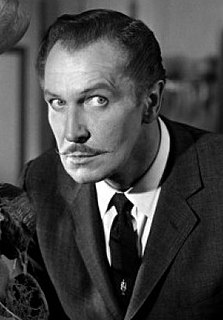A Quote by Frederick the Great
I think it better to keep a profound silence with regard to the Christian fables, which are canonized by their antiquity and the credulity of absurd and insipid people.
Related Quotes
If the colleges were better, if they had the power of imparting valuable thought, creative principles, truths which become powers, thoughts which become talents, - if they could cause that a mind not profound should become profound, - we should all rush to their gates: instead of contriving inducements to draw students, you would need to set police at the gates to keep order in the in-rushing multitude.
All Profound things, and emotions of things are preceded and attended by Silence... Silence is the general consecration of the universe. Silence is the invisible laying on of the Divine Pontiff's hands upon the world. Silence is at once the most harmless and the most awful thing in all nature. It speaks of the Reserved Forces of Fate. Silence is the only Voice of our God.
There is a metaphysical honour in ending the world's absurdity. Conquest or play-acting, multiple loves, absurd revolt are tributes that man pays to his dignity in a campaign in which he is defeated in advance.... War cannot be negated. One must live it or die of it. So it is with the absurd: it is a question of breathing with it, of recognizing its lessons and recovering their flesh. In this regard the absurd joy par excellence is creation. "Art and nothing but art", said Nietzsche, "we have art in order not to die of the truth."
Silence is something more than just a pause; it is that enchanted place where space is cleared and time is stayed and the horizon itself expands. In silence, we often say, we can hear ourselves think; but what is truer to say is that in silence we can hear ourselves not think....In silence, we might better say, we can hear someone else think.
The tongue is a small member, but it does big things. A religious who does not keep silence will never attain holiness; that is, she will never become a saint. Let her not delude herself - unless it is the Spirit of God who is speaking through her, for then she must not keep silent. But, in order to hear the voice of God, one has to have silence in one's soul and to keep silence; not a gloomy silence but an interior silence; that is to say, recollection in God.
Right at this moment, I only want silence. I believe that the end of life is silence in the love people have for you. I've actually been running through what people have said about the end. Religion says that the end is one thing, because it serves their purpose. But great thinkers alike haven't always agreed. Shakespeare knew how to say it better than anyone else. Hamlet says 'The rest is silence.' And when you think of the noises of everyday life, you realize how particularly desirable that is. Silence.
Our patriotism comes straight from the Romans. This is why French children are encouraged to seek inspiration for it in Corneille. It is a pagan virtue, if these two words are compatible. The word pagan, when applied to Rome, early possesses the significance charged with horror which the early Christian controversialists gave it. The Romans really were an atheistic and idolatrous people; not idolatrous with regard to images made of stone or bronze, but idolatrous with regard to themselves. It is this idolatry of self which they have bequeathed to us in the form of patriotism.







































